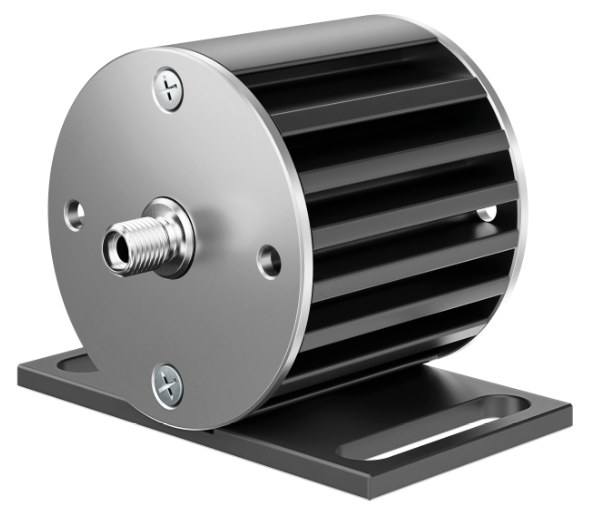Heraeus Noblelight GmbH is pleased to announce the debut of FiberLight™ L3, the first broadband UV LED light source module for analytical measurement instruments.
 FiberLight™ L3, the first broadband UV LED light source module for analytical measurement instruments. (copyright: Heraeus Noblelight GmbH)
FiberLight™ L3, the first broadband UV LED light source module for analytical measurement instruments. (copyright: Heraeus Noblelight GmbH)
FiberLight™ L3 is the first light source module that combines the benefits of LED technology, such as long lifetime and low power consumption, with broadband UV spectral output.
Broadband spectral output is desirable for optical analytical instruments because it provides the flexibility to perform both qualitative (identify what substances are present) and quantitative (amount of a substance) analysis with one instrument. FiberLight™ L3 will find immediate application in instruments used for environmental monitoring such as air and water quality, and soil monitoring, and also for protein purification.
OEMs, such as those manufacturing UV-spectrophotometers, flash chromatography can integrate the FiberLight™ L3 more easily into their analytical instruments due to its small form factor and lower optical setup costs. As a result analytical instrument OEMs can develop new portable and handheld instruments more quickly and deliver their instruments to a broader range of customers.
OEM design engineers can easily incorporate the FiberLight™ L3 into their analytical instruments, especially portable handheld units, significantly reducing the time it takes to launch a new product. And they can rest assured their customers will appreciate the long lifetime and consistent reliability."
Torsten Jenek, Head of Innovation Optics & Analytics, Heraeus Noblelight
The FiberLight™ L3 uses a single UV-LED chip and phosphors to produce the broadband output. This innovative design overcomes the many disadvantages of previous approaches which used multi-chip UV LED arrays.
Disadvantages of using multi-chip UV LED arrays include high cost, short lifetime due to shortest lifetime chip, difficult optical setup for analytical instruments, and high dynamic variation between chips.
FiberLight™ L3 provides broadband UV spectral output from 250 to 490 nm and a lifetime of more than 5.000 hours – this opens new possibilities for analytical measurement. Power consumption is less than 1.5 Watt with excellent optical stability. The module is compact for easy integration into mobile and handheld analytical instruments, incorporates the optical fiber coupling, and can operate in pulsing or continuous modes.